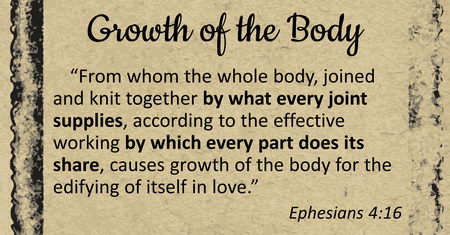Category: Faithfulness
Subject: Faithfulness
Cast Off
Psalm 60 is an acknowledgement of sin as Israel was “cast off” by God due to His displeasure (1). The Psalmist recognized that victory for Israel was possible only if God was with her. Consider these words at the end of the Psalm:
“Is it not You, O God, who cast us off? And You, O God, who did not go out with our armies? Give us help from trouble, for the help of man is useless. Through God we will do valiantly, for it is He who shall tread down our enemies” (10-12).
What a sad state to be “cast off” by God Himself. How could such happen? Well, it is certainly not because of any capricious tendency of God. Every time, the fault is with men. Jehovah told Israel through the prophet Isaiah, “Behold, the Lord’s hand is not shortened, that it cannot save; nor His ear heavy, that it cannot hear. But your iniquities have separated you from your God; and your sins have hidden His face from you, so that He will not hear” (Isaiah 59:2).
We can not prosper without God. No matter the circumstance, without God “the help of man is useless.” Only with God can we gain victory, through His Son, the Lord Jesus Christ! (cf. 1 Corinthians 15:57). “The kingdoms of this world have become the kingdoms of our Lord and of His Christ, and He shall reign forever and ever!” (Revelation 11:15).
Click below to…
Sermon: Our God is a Jealous God!
God was jealous for Israel, and demanded faithfulness from His covenant people. As Christians, we have that same relationship, and that same obligation!
The Patternists: Entrusted by God
The necessity, on every occasion, to respond to God’s authority in an appropriate manner is a central pattern found throughout scripture. While men feel that God is permissive and does not expect fealty from men, the Bible reveals otherwise, both explicitly, and implicitly.
As an example, consider Paul’s explanation of his God given stewardship in his first letter to the Thessalonians. “But as we have been approved by God to be entrusted with the gospel, even so we speak, not as pleasing men, but God who tests our hearts” (1 Thessalonians 2:4).
The Patternists: Faithfulness and Industry
In his second letter to the Thessalonians, Paul gave thanks to God for them. They were “beloved by the Lord”, as He chose them “for salvation” (2:13). He called them by the “gospel” (cf. Romans 1:16), so that they might obtain “the glory of our Lord Jesus Christ.” (2:14). In these words their standing as God’s children is well established.
Paul did not stop with commending them for their faith. He did not just give thanks for the standing they enjoyed. He in the remainder of this chapter and beginning of the next exhorted them to faithfulness and industry, working for the Lord. This is similar to what he wrote to the Ephesians in Ephesians 2:8-10, “For by grace you have been saved through faith, and that not of yourselves; it is the gift of God, not of works, lest anyone should boast. For we are His workmanship, created in Christ Jesus for good works, which God prepared beforehand that we should walk in them.”
Continue reading “The Patternists: Faithfulness and Industry” →
Entrusted with the Gospel

The apostle Paul considered himself a steward. God had given him responsibilities as an apostle, and he took those responsibilities seriously. He wrote to the Thessalonians, “But as we have been approved by God to be entrusted with the gospel, even so we speak, not as pleasing men, but God who tests our hearts” (1 Thessalonians 2:4). As he wrote on another occasion, “Let a man so consider us, as servants of Christ and stewards of the mysteries of God. Moreover it is required in stewards that one be found faithful” (1 Corinthians 4:1-2).
What is interesting about the Thessalonian text is how Paul defines faithful stewardship. “…even so we speak, not as pleasing men, but God who tests our hearts.” In the proclamation of truth it is important to please only one, God. That doesn’t mean that others will not be pleased, but that is not the mandate.
We need to understand this as well. When we preach God’s word, our intent must be to please Him. Whether or not men approve in the telling is not only not our concern, but not in any way within our control. Peter preached the gospel, leading to many conversions, (cf. Acts 2). Stephen preached the same gospel, leading to his own death (cf. Acts 7). Both pleased God in the telling. Jesus Himself had those who “heard Him gladly”, and those who put Him to death for what he had to say.
Do you want to be God’s faithful steward in the spread of the gospel? Then handle it in such a way as to please God, not men.
Click below to…
Sermon: The Roles of Joshua, Son of Nun
Joshua serves as a wonderful example of faithfulness in every role he held in his life. Whether as a son, a slave, a servant, soldier, or spy. He saved his people, and is among those set apart by God. May we faithfully serve God as he did.
COVID-19 (17) Trust in the Mercy of God Forever
Psalm 52, a psalm of David, describes David’s words to an enemy who sought to inform King Saul of his whereabouts. Of this man, David wrote, “Your tongue devises destruction, like a sharp razor, working deceitfully. You love evil more than good, lying rather than speaking righteousness. You love all devouring words, you deceitful tongue” (2-4). David then proclaims his confidence that “God shall likewise destroy you forever” (5).
Apparently this man, in his wickedness, had obtained financial security. David said of him, “Here is the man who did not make God his strength, but trusted in the abundance of his riches, and strengthened himself in his wickedness” (7). This description is so appropriate to our day. There are so many in our nation who have trusted in their riches.
Continue reading “COVID-19 (17) Trust in the Mercy of God Forever” →
Sermon: Growth of the Body
The lesson shows the need for faithfulness and zeal, by noting the admonitions and commendations to the seven churches of Asia. The key is the individual in accomplishing this need (cf. Ephesians 4:11-14)
The Patternists: Great Harlotry
The Hebrew word translated harlotry in the Old Testament (NKJV) is zanah. It is translated whoredom in the KJV of the text. Actually, the entire phrase “has committed great harlotry” is the translation of that single word, as it is found in Hosea 1:2.
The word indicates wantonness. In effect, harlotry is to fornication as gluttony is to eating. Strong, in expressing this, adds to the definition “to commit adultery, usually of the female” words such as continually, great, and go a-whoring.
The Patternists: The Test of Faithfulness

The Greek word translated “faithful” in the New Testament is defined thus by Thayer:
1) trusty, faithful;
1a) of persons who show themselves faithful in the transaction of business, the execution of commands, or the discharge of official duties;
1b) one who kept his plighted faith, worthy of trust; 1c) that can be relied on.
Consider definition 1a) related by Thayer. The term is used of persons who show themselves faithful in the execution of commands, or the discharge of duties. This is a significant truth. Throughout scripture, people faithful to God were considered faithful by Him because they obeyed His commands, and did what was required.
Continue reading “The Patternists: The Test of Faithfulness” →
Sermon: Examine Your Faith
Speaker: Joshua Cox
Josh’s lesson establishes the need for every Christian to determine for themselves whether they are living faithfully for the Lord.
The Patternists: Acceptable Words – Words of Truth

The book of Ecclesiastes is a masterpiece of experiential deduction. The initial words of the preacher, “Vanity of vanities, all is vanity” (1:2), is not a theoretical supposition — it is what he observed.
“And I set my heart to seek and search out by wisdom concerning all that is done under heaven; this burdensome task God has given to the sons of man, by which they may be exercised. I have seen all the works that are done under the sun; and indeed, all is vanity and grasping for the wind. What is crooked cannot be made straight, and what is lacking cannot be numbered. I communed with my heart, saying, ‘Look, I have attained greatness, and have gained more wisdom than all who were before me in Jerusalem. My heart has understood great wisdom and knowledge.’ And I set my heart to know wisdom and to know madness and folly. I perceived that this also is grasping for the wind. For in much wisdom is much grief, and he who increases knowledge increases sorrow” (Ecclesiastes 1:13-18).
Through all of his experiences, the preacher remained driven by a desire to know the purpose of life. He did not find it in greatness nor in knowledge, much less in madness and folly. Through it all, he persisted in his efforts, “And moreover, because the Preacher was wise, he still taught the people knowledge; yes, he pondered and sought out and set in order many proverbs. The Preacher sought to find acceptable words; and what was written was upright—words of truth” (12:9-10).
Continue reading “The Patternists: Acceptable Words – Words of Truth” →
Be Strong in Grace

Paul’s admonition in 2 Timothy 2:1, is amazingly sublime, “You therefore, my son, be strong in the grace that is in Christ Jesus.”
There are truths that are intimated by these simple words. First, it affirms Paul’s words in Philippians 4:13, “I can do all things through Christ who strengthens me.” The redemptive grace of God is accomplished through the sacrifice of His Son. “For God so loved the world that He gave His only begotten Son, that whoever believes in Him should not perish but have everlasting life. For God did not send His Son into the world to condemn the world, but that the world through Him might be saved” (John 3:16-17).
Second, it affirms that God’s will for any individual can be resisted and thwarted. Stephen told the Jews, “You stiffnecked and uncircumcised in heart and ears! You always resist the Holy Spirit; as your fathers did, so do you” (Acts 7:51). Though God is “not willing that any should perish” (cf. 2 Peter 3:9), some refuse to come to repentance.
Consequently, we understand our responsibility to work out our own salvation with fear and trembling! (Philippians 2:12). This does not mean that God’s sovereignty is denied, nor does it in anyway indicate that we earn our salvation by works of merit. Rather, it acknowledges man’s free will, and the obligation of our salvation debt.
Paul understood it, do we? “Be strong in the grace”!
Sermon: Who Can Find a Faithful Man?

A simple premise. To find a faithful man, one must know his attributes. These attributes can be seen by looking at the characters of faithful men such as Abraham, Moses and Daniel.
Sermon: Are You Still Fighting Sin?

Paul’s letter to Corinth reveals several truths about our struggles with sin. The devil will never stop probing, and his devices are many. However, there are things we can do to fight him, and faithfulness is possible!












